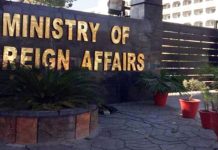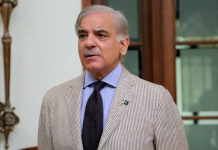A new act establishing the autonomy of the State Bank of Pakistan (SBP) is going to free the central bank from political influence but it would excessively expand the powers of its governor, according to financial experts.
The government last week approved legislation to establish the autonomy and independence of the SBP as part of a commitment to receive a $6 billion loan from the International Monetary Fund (IMF) signed in 2019. Through the abolition of the Monetary Policy and Fiscal Coordination Board, whose members included nominees of the finance ministry, the legislation, SBP Amendment Act 2021, would limit the government’s interference in the SBP’s independent implementation of monetary and exchange rate policies, and would make maintaining price stability the central bank’s primary mandate.
The experts termed the move in line with the best international practices, saying autonomy does not mean no accountability. They suggested that all regulatory bodies should be made independent in the same manner, saying this will block the way for those who have access to the power corridors and get concessionary financing facilities through political influence.
Under the new law, the governor, board of directors or deputy governor and members of the monetary policy, officers and employees of the SBP would be protected against legal actions and would also be exempted from inquiries by the National Accountability Bureau (NAB) and Federal Investigation Agency (FIA), unless the SBP board’s gives approval to initiate proceedings.
“In principle, I am supportive of the idea that the central bank should be autonomous, but it could not be unsettled and unchecked. You should give autonomy under reasonable framework,” Ali Pervaiz, member of the National Assembly Standing Committee on Finance, Revenue and Economic Affairs, told a foreign news agency.
While the government has said the SBP will be accountable to the parliament, the law leaves it unclear how inflation targets would be specified.
“Nothing new is going to happen, the central banks’ primary function is targeting inflation but there is ambiguity about the setting of inflation, its management and evaluation,” Pervaiz said. “It should be clearly decided who will decide inflation targets and what will be the accountability of the management.” He also objected to the proposed role of SBP’s governor as head of the bank’s board. “The governor who is the chief executive of the management can’t evaluate his own performance. This role should be given to an eminent economist from the private sector,” he said.
Under the new law, the term of the SBP’s governor has been increased from three to five years. The governor can also be reappointed for another five years. Critics of the SBP Amendment Act 2021 argue it has been approved in a hurry, without public deliberations and may create a “state within a state.”
“Through the amendment we are making SBP governor a ‘financial viceroy’ of Pakistan. He would be above the laws and constitution of Pakistan. We are making a state within a state,” senior economist Dr. Ashfaque Hasan Khan said.” Khan, who believes that the draft has been proposed by the IMF, called for its legal vetting by the Ministry of Law and Justice. “We are legally handing over the policy making of Pakistan to the IMF,” he said, adding: “This document has come directly from the IMF.”












